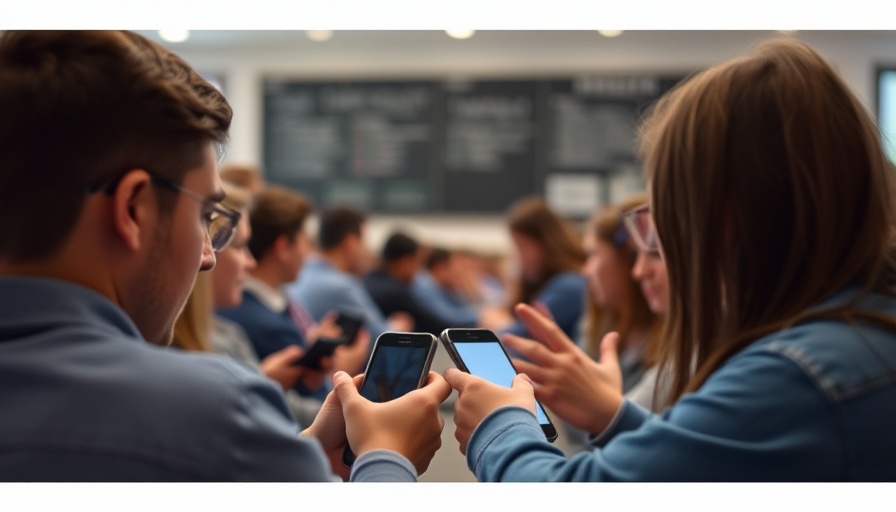
Why Smartphone Bans May Not Improve Mental Wellbeing
Recent findings challenge the widespread belief that banning smartphones in schools leads to better mental health outcomes for students. Contrary to popular opinion, studies have shown that such bans do not correlate with improved mental wellbeing or a significant decrease in out-of-school screen time. This revelation has sparked debate among parents, educators, and policymakers regarding the effectiveness of smartphone limitations.
The Connection Between Screen Time and Mental Health
Understanding the mental health implications of screen time is vital, especially in today’s digital age. Experts suggest that while excessive screen time can contribute to issues such as anxiety and depression, simply eliminating smartphones from school environments does not directly address the root causes of these problems. Researchers emphasize that mental health is influenced by various factors, including social relationships, academic pressure, and personal lifestyle choices.
A Look at Current Practices in Schools
Many schools across the Grand Strand region have implemented smartphone bans with the hope of creating a more focused learning environment. However, as studies reveal, the absence of smartphones in classrooms does not automatically enhance mental wellness. Instead, students may find alternative methods to engage with technology outside school, which can perpetuate unhealthy habits without addressing the underlying issues.
Community Reactions: An Emotional Perspective
In the Grand Strand area, community reactions to smartphone bans in schools are mixed. Parents often express concern for their children's wellbeing and academic performance and advocate for ban implementations. However, feedback from students indicates that they feel disconnected and isolated without their devices, which can further exacerbate mental health issues. This emotional complexity illustrates the necessity for a nuanced approach to addressing both academic focus and mental health.
Exploring Alternative Solutions
Rather than outright bans, experts recommend implementing educational programs that teach students about responsible smartphone usage and digital wellbeing. Solutions can include workshops focusing on balancing screen time with offline activities, promoting healthy interactions in virtual environments, and providing resources for mental health support. These alternatives aim to empower students, rather than isolate them from technology.
The Role of Parents and Guardians
Parents and guardians play a crucial role in shaping a child’s relationship with technology. Encouraging family activities without screens, setting boundaries around device usage, and fostering open conversations about mental health can create a supportive home environment. By partnering with schools to enhance digital literacy, families can contribute to a healthier outlook on technology usage.
Final Thoughts: The Path Forward
As we consider the implications of smartphone usage on mental health, it becomes clear that simple bans may not offer the solutions many believe. The focus should shift from prohibition to education and support, empowering students to navigate their digital worlds intelligently.
In conclusion, as residents of the Grand Strand look to foster healthier lifestyles for themselves and their children, it is imperative to engage in ongoing discussions on how technology can play a constructive role in educational success and mental wellbeing. Understanding and addressing the complexity of smartphone use will be vital for creating a healthier and more connected community.
 Add Row
Add Row  Add
Add 





 Add Row
Add Row  Add
Add 
Write A Comment